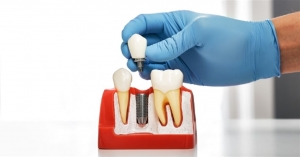When it comes to oral health, many people assume their general dentist can handle every concern. While dentists are trained to diagnose and treat a wide variety of dental issues, there are situations where a higher level of expertise is required. That's where oral surgeons step in. These specialists bridge the gap between routine dental care and complex procedures, offering advanced training, precision, and care when it matters most.
Knowing when to see an oral surgeon can make the difference between a smooth recovery and prolonged complications.
The Role of an Oral Surgeon
An oral surgeon, sometimes referred to as an oral and maxillofacial surgeon, is a dental specialist who undergoes several years of additional education beyond dental school. This advanced training equips them to handle complex issues involving the mouth, teeth, jaws, and facial structures. Their scope extends well beyond routine fillings and crowns, covering everything from surgical extractions to corrective jaw surgery.
What sets oral surgeons apart is their ability to combine medical knowledge with surgical expertise. This means they can address conditions that not only affect oral function but also have implications for overall health. Whether it's removing impacted wisdom teeth, repairing facial trauma, or performing reconstructive surgery, oral surgeons bring specialized skills that general dentists may not possess.
When General Dentistry Isn't Enough
Most dental visits involve preventive care, restorative treatments, or cosmetic procedures. However, there are times when the complexity of a case goes beyond the scope of general practice. If you've ever experienced persistent jaw pain, struggled with complicated tooth extractions, or required advanced dental implants, you've likely encountered a situation where a specialist would be the smarter choice.
Consider impacted wisdom teeth. While some dentists are comfortable performing extractions, impacted or partially erupted teeth often require surgical removal. Without the right expertise, these cases can lead to nerve damage, infections, or incomplete extraction. An oral surgeon has the training to anticipate these challenges and ensure the procedure is performed safely.
Similarly, patients with jaw misalignment may benefit from corrective jaw surgery. This isn't simply about aesthetics — jaw misalignment can cause chronic pain, speech difficulties, and chewing problems. An oral surgeon can evaluate the issue holistically, recommend the best treatment, and perform surgery if necessary.
Oral Surgery and Dental Implants
Dental implants have become a gold standard for replacing missing teeth, offering durability and a natural appearance. However, successful implantation requires precision and planning. Factors such as bone density, gum health, and placement angles all play a role in whether an implant will integrate properly with the jawbone.
While some general dentists perform implant procedures, patients with complex cases are often referred to an oral surgeon. For example, if bone grafting or sinus lifts are required before an implant can be placed, a specialist ensures the procedure is carried out with the highest level of care. This reduces risks and increases the likelihood of long-term success.
Addressing Facial Trauma and Oral Pathology
Not all visits to an oral surgeon are planned. Accidents, sports injuries, and unexpected trauma can result in fractures, dislocated jaws, or damage to facial structures. In such cases, an oral surgeon is often the first line of treatment, working to restore both function and appearance.
Beyond trauma, oral surgeons also diagnose and treat oral pathology. This includes cysts, tumors, and other growths that develop in the mouth or jaw. Early detection and treatment are critical for these conditions, and oral surgeons have the training to identify abnormalities that might otherwise go unnoticed.
Why Choosing a Specialist Matters
It's natural to wonder whether seeking a specialist is worth the extra step. After all, visiting multiple dental professionals may feel inconvenient. However, the benefits of seeing an oral dental surgeon are significant. Their expertise minimizes risks, shortens recovery times, and ensures that procedures are performed with the highest degree of precision.
Additionally, oral surgeons are often more familiar with the latest techniques and technology. This means patients can expect modern approaches to pain management, minimally invasive surgical methods, and advanced imaging for accurate diagnoses. These advantages collectively improve outcomes and enhance the overall patient experience.
What to Expect During a Visit
For many, the idea of oral surgery can feel intimidating. However, knowing what to expect can ease anxiety. A typical visit to an oral surgeon begins with a comprehensive consultation. This includes a review of your medical history, dental records, and imaging such as X-rays or 3D scans. The surgeon will then explain the recommended procedure, outline potential risks, and answer any questions you may have.
Anesthesia options are also discussed during the consultation. Oral surgeons are trained in administering local, sedation, and general anesthesia, ensuring that patients remain comfortable throughout their procedure. Post-operative care instructions and follow-up appointments are provided to monitor recovery.
Conclusion
Oral health is deeply connected to overall well-being, and sometimes the smartest move is to seek care from a specialist. Whether it's wisdom tooth removal, dental implants, corrective jaw surgery, or treatment for oral pathology, oral surgeons are uniquely trained to handle complex cases with skill and compassion. By understanding when to seek their expertise, patients can avoid unnecessary complications and enjoy long-term benefits for their oral and overall health.
When faced with a dental concern that feels beyond routine care, remember that an oral surgeon is more than a specialist — they are a trusted partner in achieving lasting health and confidence.






